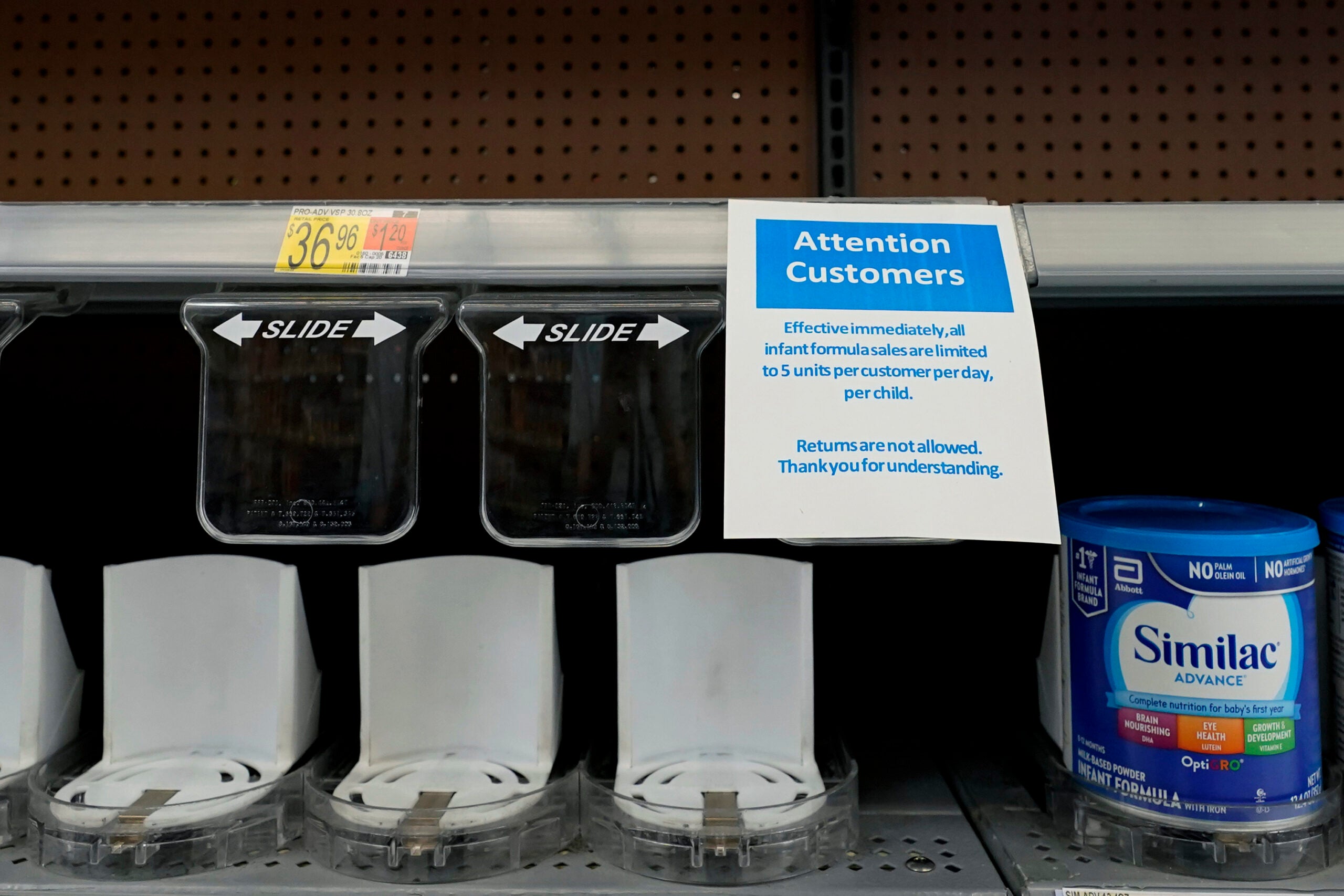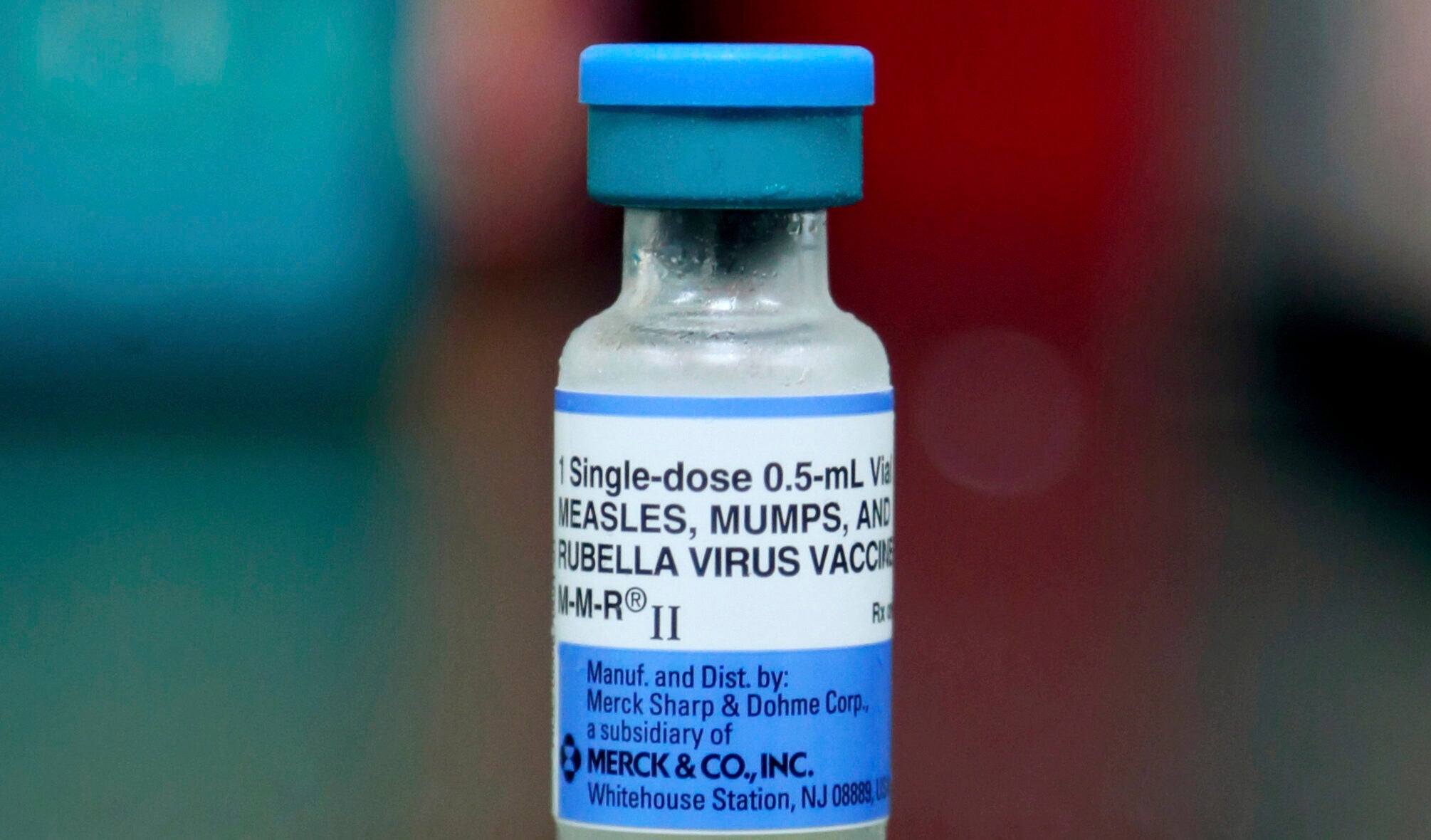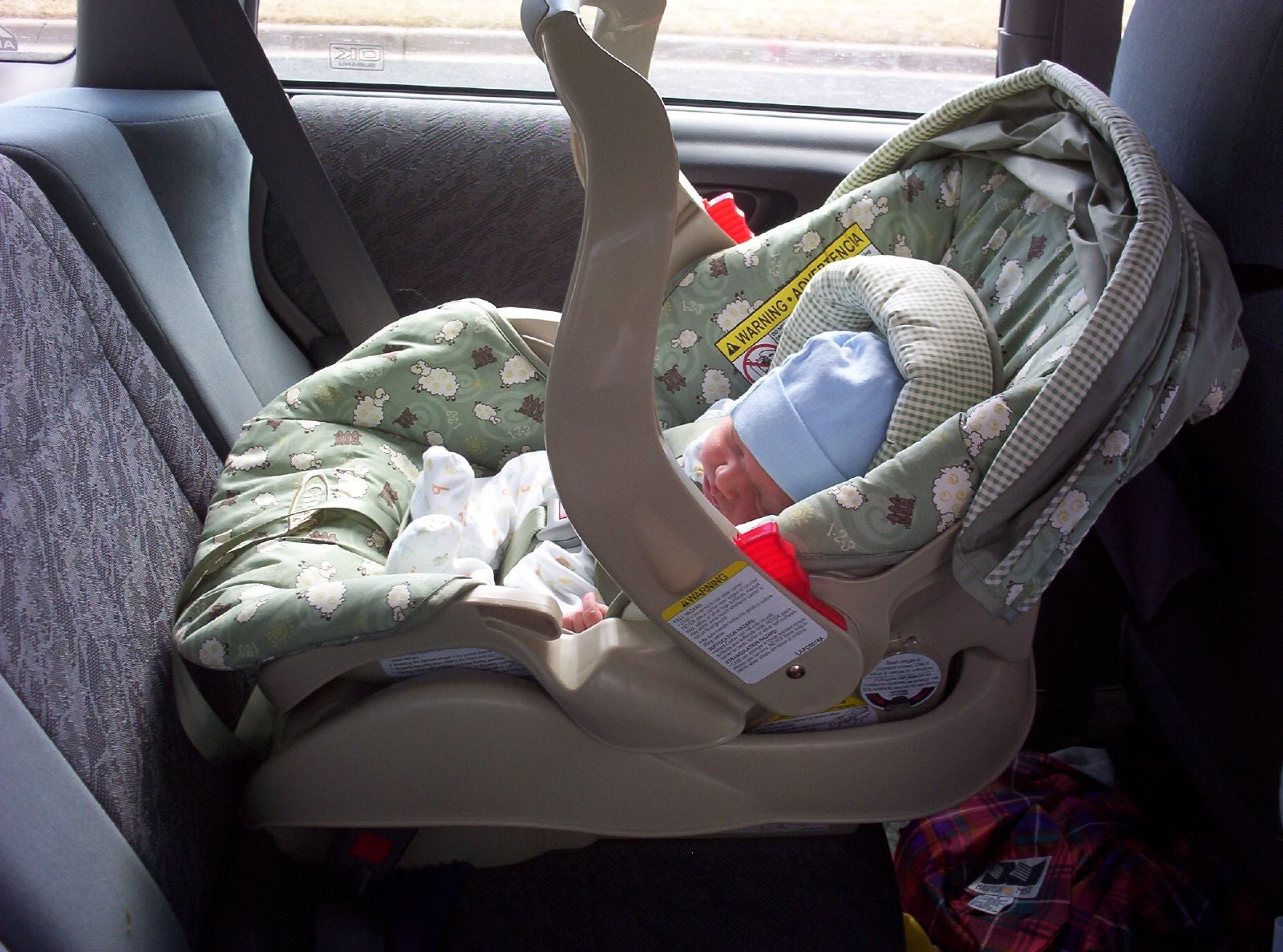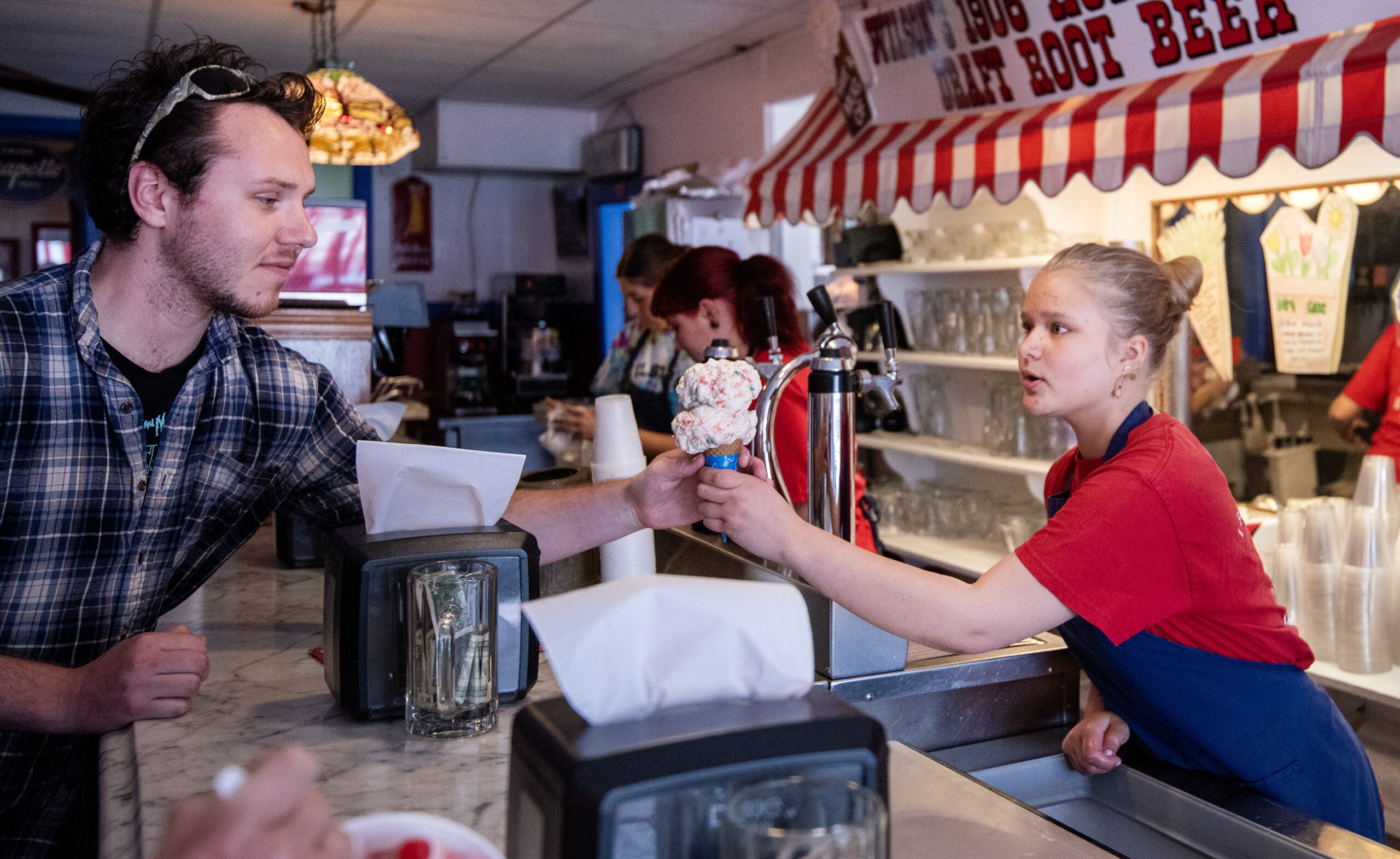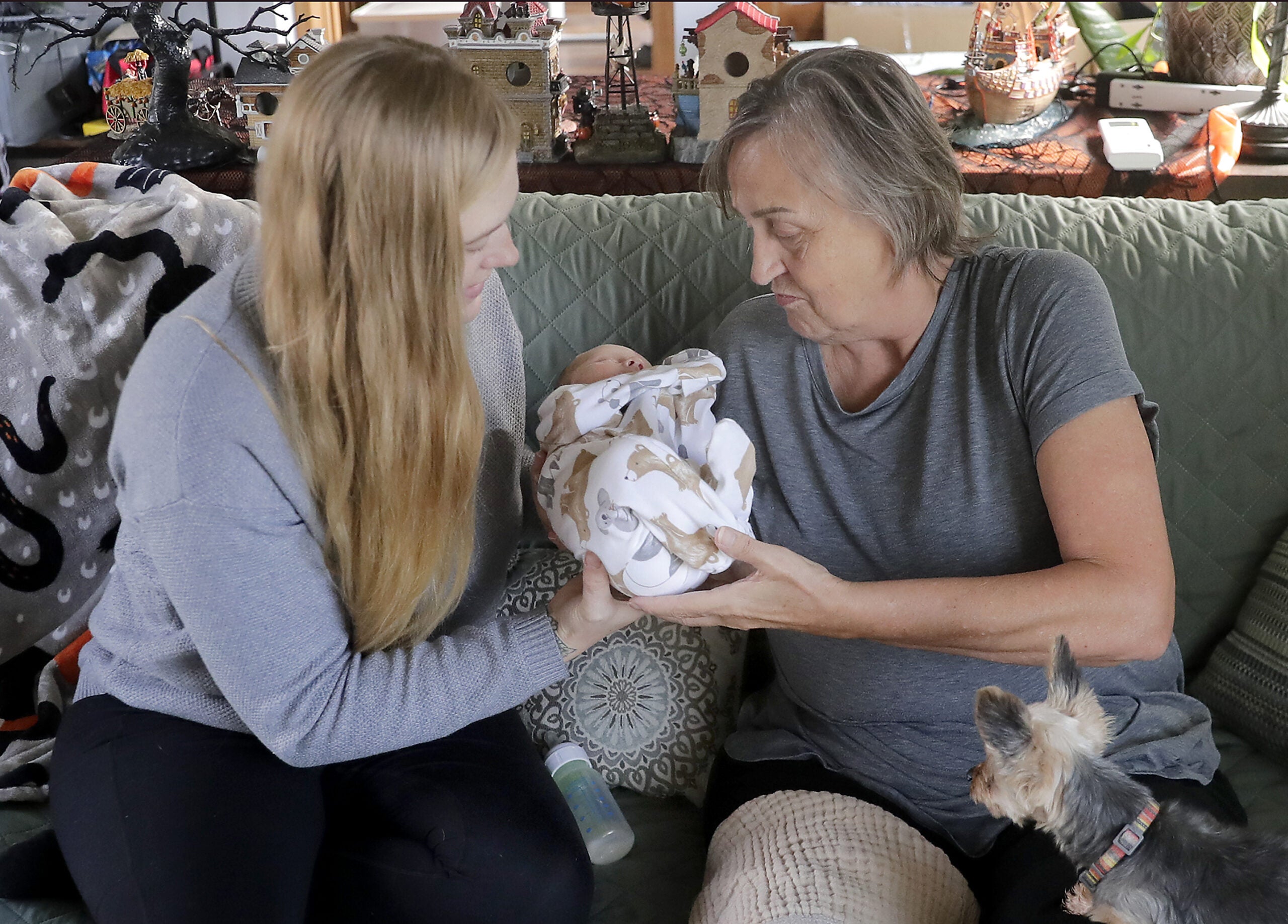Jennifer Loging has received a growing number of calls in the last few months from families struggling to find baby formula on local store shelves. As manager of La Crosse County’s office for the Special Supplemental Nutrition for Women, Infants, and Children Program, or WIC, it’s been her job to help them find the food their babies need.
“They’ll go to a store and the shelves may be bare, or there’s just limited amounts of certain types of formula on the shelves. So the challenge is they may not find the brand or the type of formula that they’re looking for,” Loging said, adding that some of the people calling her office aren’t even enrolled in WIC.
Nationwide, retailers are reporting a shortage of pediatric formula on store shelves. NPR reported the average out-of-stock rate for baby formula at retailers across the country was 43 percent during the first week of May. Experts say the shortage is due in part to a voluntary recall from formula manufacturer Abbott in February and the supply chain problems that have plagued many industries during the COVID-19 pandemic.
Stay informed on the latest news
Sign up for WPR’s email newsletter.
Camila Martin, pediatric clinical nutritionist for UW Health, said families she works with have been struggling with out-of-stock formulas for at least six months, but the shortage seems to be getting worse in recent weeks. She said the most affected are babies and children with special dietary needs.
“It’s infant formulas as well as pediatric formulas for some of our patients that require specialty formulas due to issues with allergies or malabsorption or other pretty significant health care conditions,” Martin said. “It’s one thing for us adults to switch what food we’re eating or to switch our routine. But babies and complex children are a lot more sensitive to these small changes. So it’s been a really big stressor for a lot of families.”
Martin says manufacturers make similar versions of each formula type, so she tells parents there are usually safe alternatives for them to easily switch to.
“What’s tricky for families is the language that each of these companies uses can be slightly different. So one company might use the word gentle, whereas the other one uses soothe, versus gentlease. And it’s really hard to figure out as a parent, what that language means, and which one actually is equivalent,” she said.
Martin said it’s taken a few tries to find the best alternative for some patients, which can be expensive for families. She said some of her patients aren’t doing well on alternatives, but families have been able to find something to get by on until they can find their preferred brand.
Loging said families should not dilute infant formula to try to make it last longer nor should they try to make their own formula at home.
She said her office has been helping families find alternative formulas or in some cases has directed them to a local food pantry that has formula available.
But Jeff Joslyn from Feeding America Eastern Wisconsin said food banks are running into the same supply chain problems that retailers are. His organization, which supplies food pantries in 35 counties in the state, has tried to purchase baby formula directly from manufacturers in recent months.
“They didn’t have any availability for new orders at that time,” Joslyn said. “We also work directly with other partners like retailers and wholesalers. We also would reach out to them with the same question, ‘Do you have anything that you can sell us? Is there anything that we can do to get access to the product?’ And they were facing exactly the same issue.”
Joslyn said formula is not something they typically receive as a donation and they haven’t seen any new donations from people looking to help with the shortage. And he said that’s a good thing.
“If there’s product in the store, I would try to leave it in the store to be frank, because that way there are people who might be able to purchase it who are utilizing WIC,” Joslyn said. “It’s all part of one larger supply chain, right? So if you try to do something out of the ordinary, it can have effects that you aren’t realizing down the line.”
He said a better way to help ensure families in need can get formula is by supporting organizations like his that can bulk order products from manufacturers to distribute.
Wisconsin Public Radio, © Copyright 2025, Board of Regents of the University of Wisconsin System and Wisconsin Educational Communications Board.
